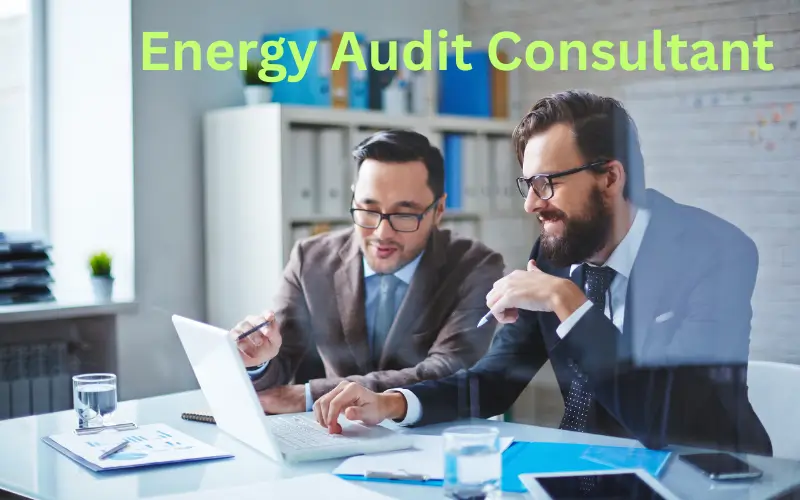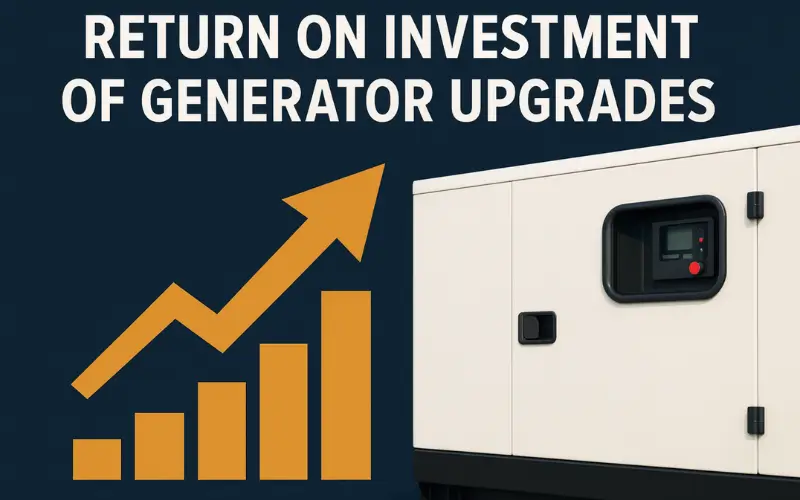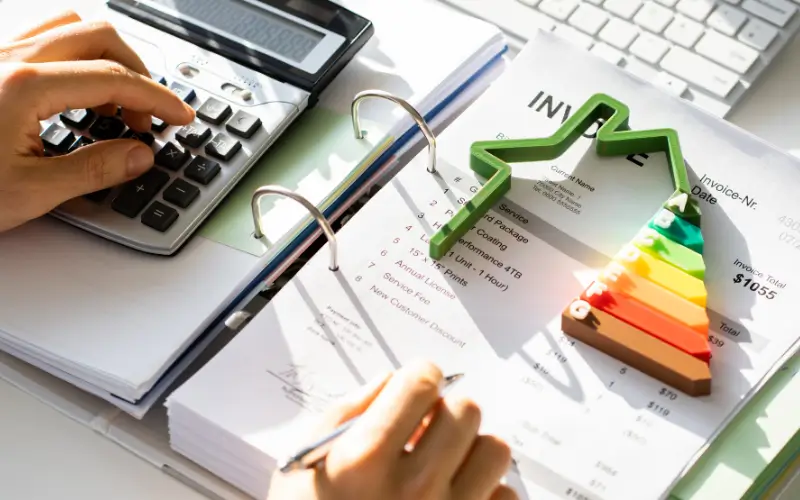As energy costs continue to rise and sustainability becomes a top priority across industries, businesses in Bangladesh are under increasing pressure to optimize their energy use. One of the most effective ways to identify inefficiencies and unlock cost-saving opportunities is by conducting a professional energy audit.
In Bangladesh, this process has become more regulated and structured with the involvement of the Sustainable and Renewable Energy Development Authority (SREDA), which mandates energy audits for certain industries—particularly those classified as Designated Consumers (DCs). However, the success of an energy audit largely depends on one crucial factor: choosing the right energy audit consultant.
Not all energy audit consultants are created equal. The right consultant doesn’t just check boxes—they offer in-depth technical knowledge, practical recommendations, and industry-specific experience that leads to real improvements in energy performance. In a country like Bangladesh, where regulatory compliance and access to green financing hinge on proper energy audits, making the right choice is more important than ever.
Understanding Energy Audit Consultant in Bangladesh
What Is an Energy Audit & Why It Matters
An energy audit is a systematic process of analyzing how energy is used within a facility, identifying inefficiencies, and recommending measures to reduce energy consumption without compromising performance. In Bangladesh, energy audits are increasingly seen as a critical tool for industrial sustainability, regulatory compliance, and cost management.
Key objectives of an energy audit include:
- Identifying energy-saving opportunities in processes and equipment
- Reducing energy waste and operational costs
- Improving equipment performance and lifespan
- Ensuring compliance with government regulations (e.g., SREDA requirements)
- Supporting access to green financing options such as the Green Transformation Fund (GTF)
Energy audits are especially relevant in high-consumption industries like textiles, garments, steel, cement, pharmaceuticals, and food processing, where even minor efficiency improvements can lead to significant cost savings.
Regulatory & Certified Framework in Bangladesh
The energy auditing landscape in Bangladesh is governed by the Sustainable and Renewable Energy Development Authority (SREDA) under the Ministry of Power, Energy and Mineral Resources. In 2018, SREDA introduced the Energy Audit Regulations that made energy audits mandatory for Designated Consumers (DCs)—industries that consume large amounts of energy.
Key highlights of the regulatory framework:
- Mandatory Compliance: Designated industries must conduct periodic energy audits and report findings to SREDA.
- Accreditation: Only SREDA-certified Energy Auditors and Audit Firms are authorized to carry out these assessments.
- Penalty for Non-Compliance: Industries failing to comply can face regulatory consequences, including denial of access to financing or operational permits.
- Audit Standardization: SREDA ensures audits follow international best practices (e.g., ASHRAE Levels 1–3).
In addition to regulatory compliance, certified audits are often required by financial institutions (e.g., Bangladesh Bank) and international bodies when applying for sustainability-linked loans or certifications (like Higg Index, LEED, etc.).
Why Energy Audit Consultants Are Crucial
While any engineer can analyze systems, only trained and certified energy audit consultants have the tools, knowledge, and experience to:
- Interpret energy data within the context of Bangladesh’s industrial systems
- Understand regulatory requirements and proper audit formatting
- Recommend industry-specific efficiency upgrades
- Help clients qualify for loans or international green certifications
- Provide post-audit support for implementation and monitoring
Without a qualified consultant, even a well-intentioned audit can fall short—leading to compliance issues, wasted money, and missed savings opportunities.
Who Counts as a Qualified Energy Audit Consultant
Hiring the right energy audit consultant isn’t just about finding someone with technical knowledge—it’s about ensuring they are certified, experienced, and aligned with regulatory standards in Bangladesh. With growing demand for energy audits across sectors, it’s critical to distinguish between general engineers and qualified, SREDA-recognized professionals.
Credentials & Certifications
The most important qualification when hiring an energy audit consultant in Bangladesh is SREDA certification. As per the Energy Audit Regulations 2018, only SREDA-certified auditors are authorized to conduct energy audits for Designated Consumers (DCs).
Here’s what to look for:
SREDA-Certified Energy Auditor (CEA) or Audit Firm
- Listed on the official SREDA registry
- Valid license to perform audits in Bangladesh
- Compliant with audit report submission formats accepted by SREDA, GTF, and Bangladesh Bank
Additional Useful Certifications
While not mandatory, the following credentials add value and demonstrate international-level expertise:
- Certified Energy Manager (CEM) – offered by the Association of Energy Engineers (AEE)
- ASHRAE Membership/Training – relevant for ASHRAE Level audits
- Energy Efficiency Training – from international agencies like ECCJ, UNDP, GIZ, or national energy efficiency programs
These qualifications reflect a consultant’s commitment to ongoing learning and global best practices.
Experience & Track Record
Credentials are essential, but real-world experience is what separates a good consultant from a great one. Ask these questions to evaluate a consultant’s track record:
- Have they completed audits in your specific industry (e.g., textiles, steel, cement, pharmaceuticals)?
- How many audits have they successfully delivered in Bangladesh?
- Do they have experience working with Designated Consumers (DCs) and submitting reports to SREDA?
- Have their audit findings led to actionable savings or implementation support?
Look for detailed case studies that highlight:
- Measurable energy savings (% reduction in electricity or fuel usage)
- Implementation of recommended measures
- ROI and payback periods after action
- Any financing accessed due to their reports (e.g., GTF or donor-funded green projects)
For example, a qualified consultant may show how they helped a textile factory in Gazipur reduce electricity consumption by 15% through boiler and lighting system upgrades.
Red Flags to Watch Out For
- Consultants who lack SREDA certification
- Generic reports with no cost-benefit analysis
- Little to no experience in your sector
- No follow-up or post-audit implementation support
- Unable to provide references or documented savings
Hiring a consultant without the right credentials or experience can lead to non-compliant audits, denied financing, or ineffective recommendations—wasting both time and resources.
Key Evaluation Criteria: How to Compare Consultants
Choosing an energy audit consultant is not just about credentials—it’s about selecting a partner who can provide measurable value, ensure compliance, and support your long-term energy goals. Here are the key factors to consider when comparing consultants in Bangladesh.
1. Scope of Services Offered
Not all consultants offer the same depth or breadth of services. It’s important to match your organization’s needs with the scope of services a consultant provides.
Look for those who offer:
ASHRAE Audit Levels I–III
- Level I (Walk-through Audit): Quick overview to identify obvious issues
- Level II (Energy Survey and Analysis): Detailed analysis with energy-saving recommendations
- Level III (Investment Grade Audit): Comprehensive modeling with financial analysis and ROI projections
System-Specific Audits
- Boiler and steam system efficiency
- HVAC and ventilation systems
- Electrical systems (motors, lighting, controls)
- Compressed air systems
- Water and wastewater treatment plants
- Building envelope and insulation
Value-Added Services
- Energy modeling/simulation
- Renewable energy feasibility (solar, biomass)
- Implementation roadmaps
- ESG and sustainability reporting
- Green factory certification support (e.g., LEED, HIGG Index)
2. Compliance & Financing Capability
A major reason for conducting energy audits in Bangladesh is compliance with SREDA and access to green financing.
Ask consultants whether they:
Prepare reports in SREDA-accepted formats
Have helped clients qualify for financing through:
- Green Transformation Fund (GTF)
- Bangladesh Bank refinancing schemes
- International climate funds (GCF, ADB, etc.)
Working with a consultant familiar with the regulatory and financial ecosystem ensures that your audit unlocks funding—not just identifies problems.
3. Technical Tools & Methodology
Quality audits rely on accurate data and sophisticated analysis. Assess the consultant’s technical capabilities by asking:
- What tools, software, or meters do they use for data logging and diagnostics?
- Do they use energy modeling software like eQuest, RETScreen, or IES?
- How do they benchmark energy performance (locally and globally)?
- Do they provide customized recommendations, or are reports mostly generic?
A reliable consultant will have a clearly defined methodology and be transparent about how they derive savings estimates.
4. Client References & Past Performance
Reputation matters. Don’t hesitate to ask for:
- Case studies from past audits in your industry
- Client references with contact information
- Examples of measurable outcomes (e.g., 12% reduction in gas usage)
- Repeat clients or long-term partnerships
- Reports or outcomes that led to actual implementation or financing
You can even contact past clients to ask:
“Did the consultant’s recommendations lead to real savings?”
“Were the reports accepted by SREDA or financing bodies?”
5. Cost & Value Assessment
While cost is an important factor, the cheapest consultant is rarely the best. You should aim for value, not just price.
Things to Evaluate:
- Transparency in pricing (flat fee vs performance-based)
- What’s included: data collection, analysis, reporting, follow-up
- Estimated return on investment (ROI) and payback period
- Will the consultant assist in implementation or only deliver the report?
A good consultant should help you save significantly more than their fees over time—through better energy performance, reduced utility bills, or financing access.
Quick Comparison Checklist
| Criteria | What to Look For |
| Certification | SREDA-approved, additional global credentials |
| Audit Types | ASHRAE Level I–III, system-specific expertise |
| Experience | Sector-specific case studies, implementation history |
| Tools & Methodology | Advanced diagnostics, modeling, benchmarking |
| Financing Knowledge | GTF/Bangladesh Bank compliance and experience |
| Client Testimonials | Verifiable results, strong references |
| Value vs Cost | ROI-focused pricing and long-term support |
Step-by-Step Process to Choose the Right Consultant
Finding the right energy audit consultant in Bangladesh can feel overwhelming, especially with increasing regulatory pressure and growing competition among service providers. To simplify the process, here’s a step-by-step guide to help you make the right choice—with confidence and clarity.
Step 1: Shortlist Certified Firms & Auditors
Start by identifying consultants who meet the baseline legal requirement: SREDA certification.
How to do this:
- Visit the official SREDA website and check their list of certified auditors and audit firms.
- Ask for referrals from industry associations, peers, or chambers (like BGMEA, BKMEA, BEIOA).
- Check consultant websites for proof of certification and licensing.
Step 2: Compare Credentials and Project Experience
Once you have a shortlist, dig deeper into each consultant’s qualifications and track record.
Ask yourself:
- Are they experienced in your industry (textiles, pharmaceuticals, cement, etc.)?
- Do they have international training or certifications in addition to SREDA credentials?
- Can they show case studies or examples with measurable savings or implementation success?
Request documentation, such as:
- A portfolio of past projects
- Audit samples (with sensitive information removed)
- Training certificates or industry awards
Step 3: Interview & Request a Proposal
This step helps you evaluate both technical fit and communication style.
What to ask during the interview:
- What is your audit methodology (ASHRAE levels, tools, timeline)?
- Have you worked with companies of our size and energy profile?
- Can you help with SREDA compliance and green financing applications?
- What will the final deliverables include—just a report, or implementation support too?
What to request in the proposal:
- Audit scope, objectives, and coverage areas
- Timeline for audit phases (data collection, site visit, analysis, reporting)
- Cost structure and payment schedule
- Expected outcomes (energy savings estimates, ROI, payback period)
Step 4: Evaluate Costs and Projected ROI
Once you receive proposals, compare them on more than just price.
Key criteria to assess:
- Clarity: Is the scope clearly defined, or vague?
- Value: Does the proposal include potential savings, not just problems?
- Tools & Techniques: Are advanced diagnostics and modeling used?
- Support: Will the consultant help implement solutions or just walk away after the report?
Step 5: Check Post-Audit Support
A good audit doesn’t end with the final report. The best consultants stay involved in:
- Implementation planning and vendor coordination
- Monitoring of energy-saving results
- Assistance with financing documentation (GTF, donor funding, etc.)
- Follow-up audits and system optimization
Ask:
- “Will you help us prioritize and implement the audit recommendations?”
- “Do you offer a monitoring and verification phase?”
- “Can we reach you for guidance post-audit?”
Bonus Tip: Use a Weighted Scorecard
When comparing finalists, create a scorecard with criteria such as:
- Certification (mandatory)
- Sector-specific experience
- Audit depth (Level II or III)
- Client references
- Financing support
- Cost transparency
- Post-audit support
Score each consultant (e.g., 1–5) and choose the one with the highest total based on your needs—not just price.
Profiles of Leading Consultants in Bangladesh
To help you get started with your search, here are profiles of some well-known and SREDA-certified energy audit consultants in Bangladesh. These firms have demonstrated technical expertise, regulatory compliance, and experience across various sectors.
1. Greenbud BD
Website: greenbudbd.com
- Certifications: SREDA-certified, listed on SREDA’s approved auditors list
- Industries Served: Textiles, garments, leather, food processing, chemicals
Key Strengths:
- Fully compliant with SREDA audit regulations
- Prepares audit reports accepted by GTF and Bangladesh Bank
- Offers implementation guidance beyond just audit reporting
- Experience in helping clients secure green financing
- Strong background in energy modeling, renewable integration, and LEED consulting
Notable Services:
- ASHRAE Level 1–3 audits
- Energy performance benchmarking
- Boiler, HVAC, compressed air audits
- Decarbonization strategies for factories
2. Eco Energy Engineering & Consultancy (EEEC)
Website: ecoenergybd.com
- Certifications: SREDA-certified auditor and consulting firm
- Industries Served: Power plants, garments, textile mills, cement factories
Key Strengths:
- Provides a full suite of energy audits, feasibility studies, and consultancy
- Special focus on waste heat recovery, cogeneration, and energy efficiency projects
- Assists with project financing and loan documentation
- Recognized for technical accuracy and tailored solutions
Notable Services:
- Energy simulation and analysis
- Renewable energy project feasibility (solar PV, biomass)
- System-specific diagnostics: boiler, HVAC, lighting
3. ENRGTECH Solutions
Website: enrgtechbd.com
- Certifications: SREDA-certified, experienced in large-scale energy auditing
- Industries Served: Garments, spinning mills, food & beverage, cement
Key Strengths:
- Strong expertise in ASHRAE-based audits and simulation tools
- Delivers actionable insights through data-driven reports
- Focus on decarbonization and net-zero consulting
- Known for customizable audit services, from walk-throughs to investment-grade audits
Notable Services:
- Energy audits with GTF-compliant reporting
- HVAC and mechanical system diagnostics
- Post-audit implementation support
- Green building consultation
4. FBSC Energy Solutions
Website: fbsc.com.bd
- Certifications: SREDA-approved energy auditor
- Industries Served: Garments, pharmaceuticals, foundries, metalworking
Key Strengths:
- Strong presence in industrial energy efficiency and compliance audits
- Offers ASHRAE Level I–III and sector-specific audit packages
- Hands-on implementation support available for retrofit projects
- Emphasis on real-world energy savings and cost reduction
Notable Services:
- Thermal and electrical energy audits
- Measurement & verification (M&V) services
- Air, water, and energy nexus audits
- Carbon footprint analysis
5. FMEC Consultants
Website: fmecbd.com
- Certifications: SREDA-accredited, LEED consultants
- Industries Served: Green buildings, textile mills, pharmaceuticals
Key Strengths:
- Provides energy audit as part of comprehensive MEP and sustainability consulting
- Known for integrating energy audits into LEED and green building certification processes
- Strong emphasis on mechanical system optimization and design
- Offers retrofit consulting and energy simulation modeling
Notable Services:
- Whole-building energy audits
- MEP system design and optimization
- Energy performance contracting (EPC) guidance
- LEED commissioning and reporting support
How to Contact Them
When contacting any of the firms above, ask for:
- Proof of SREDA certification
- Sample audit reports
- Case studies relevant to your sector
- References from past clients
- Detailed proposal with audit methodology and timeline
Conclusion
Choosing the right energy audit consultant in Bangladesh is not just a regulatory formality—it’s a strategic decision that can significantly impact your organization’s energy efficiency, cost savings, and sustainability credentials.
Whether you’re a textile mill aiming to reduce your utility bills or a pharmaceutical plant preparing for green certification, a well-executed energy audit can unlock measurable benefits. But those benefits hinge on working with the right partner—one who brings more than just a clipboard to the job.
To recap, the best energy audit consultants in Bangladesh are:
- SREDA-certified and aligned with national regulations
- Experienced in your specific industry with a solid portfolio of past projects
- Able to deliver ASHRAE-standard audits with meaningful, actionable insights
- Equipped with technical tools and a structured methodology
- Willing to assist beyond the report—through implementation support and green financing guidance
In today’s energy-conscious landscape, it’s no longer enough to simply meet compliance standards. The right consultant can help you go further—by reducing your carbon footprint, boosting operational efficiency, and even opening doors to funding and sustainability certifications.
Make your choice wisely. A smart audit today can fuel your success for years to come.
Frequently Asked Questions (FAQ)
Here are some of the most commonly asked questions about hiring an energy audit consultant in Bangladesh—answered in simple, actionable terms.
1. What credentials must an energy audit consultant have in Bangladesh?
To conduct legally recognized energy audits in Bangladesh, a consultant must be certified by SREDA (Sustainable and Renewable Energy Development Authority). Additional qualifications like CEM (Certified Energy Manager) or training from international bodies (ASHRAE, UNDP, ECCJ) add further credibility.
2. How do I verify if an audit firm or auditor is SREDA-certified?
Visit the official SREDA website and navigate to their list of approved energy audit firms and certified auditors. You can also request proof of certification directly from the consultant.
3. What’s the difference between ASHRAE Level 1, 2, and 3 audits?
- Level 1 (Walk-through Audit): A quick review to identify obvious energy-saving opportunities.
- Level 2 (Energy Survey and Analysis): More detailed, with energy usage breakdown and ROI estimates.
- Level 3 (Investment Grade Audit): Highly detailed, with data modeling, financial analysis, and implementation-ready plans.
4. Can energy audits help secure financing or green loans?
Yes. Properly conducted audits—especially those compliant with GTF (Green Transformation Fund) and Bangladesh Bank guidelines—are often required for accessing green loans and climate financing. Your consultant should help prepare reports suitable for these applications.
5. What should be included in a consultant’s proposal?
A professional proposal should include:
- Scope of work (systems to be audited)
- Audit methodology (tools, ASHRAE level)
- Timeline and deliverables
- Estimated costs and payment terms
- Expected outcomes (energy savings, ROI)
- Post-audit support (implementation help)
6. How long does a typical audit process take?
Depending on the scope and facility size:
- Level 1 Audit: 1–3 days
- Level 2 Audit: 1–2 weeks
- Level 3 Audit: Several weeks (includes monitoring, modeling, financial analysis)
Post-audit reporting may take additional time.
7. Do audit firms provide support during implementation?
Many reputable firms offer post-audit support, including:
- Implementation planning
- Vendor selection assistance
- Monitoring and verification of energy savings
- Guidance on securing financing or subsidies
- Make sure to ask about this during the consultant selection process.
8. Is an energy audit a one-time process?
No. While a single audit can provide immediate benefits, energy audits are most effective when conducted periodically—especially in fast-changing industries. SREDA also mandates repeat audits for Designated Consumers every few years.
9. How much does a typical energy audit cost in Bangladesh?
Cost varies widely depending on:
- Size and complexity of the facility
- Type of audit (Level 1, 2, or 3)
- Consultant experience and scope of deliverables
As a rough estimate:
- Small facilities: BDT 50,000–150,000
- Medium to large industrial plants: BDT 2–5 lakh or more
- Always weigh the cost vs potential savings or financing access.
10. What’s the biggest mistake companies make when choosing a consultant?
Choosing solely based on price—without checking:
- Certification status
- Industry-specific experience
- Methodology and toolset
- References and measurable outcomes
- The cheapest option often leads to non-compliant reports or missed savings.




